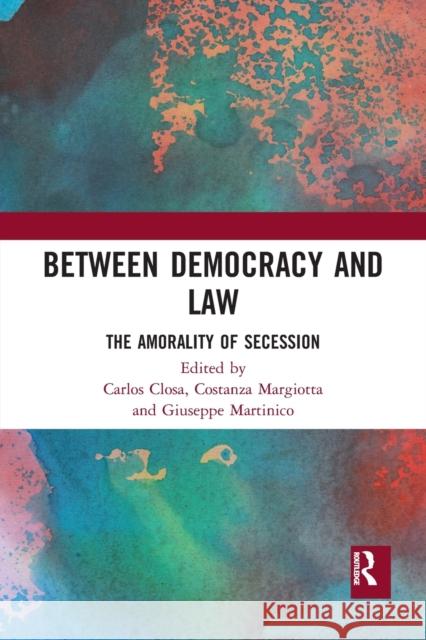Between Democracy and Law: The Amorality of Secession » książka
topmenu
Between Democracy and Law: The Amorality of Secession
ISBN-13: 9780367726720 / Angielski / Miękka / 2021 / 232 str.
Between Democracy and Law: The Amorality of Secession
ISBN-13: 9780367726720 / Angielski / Miękka / 2021 / 232 str.
cena 219,00
(netto: 208,57 VAT: 5%)
Najniższa cena z 30 dni: 201,44
(netto: 208,57 VAT: 5%)
Najniższa cena z 30 dni: 201,44
Termin realizacji zamówienia:
ok. 16-18 dni roboczych.
ok. 16-18 dni roboczych.
Darmowa dostawa!
This volume purports to explore the legal and political issues triggered by the new wave of secessionism.











